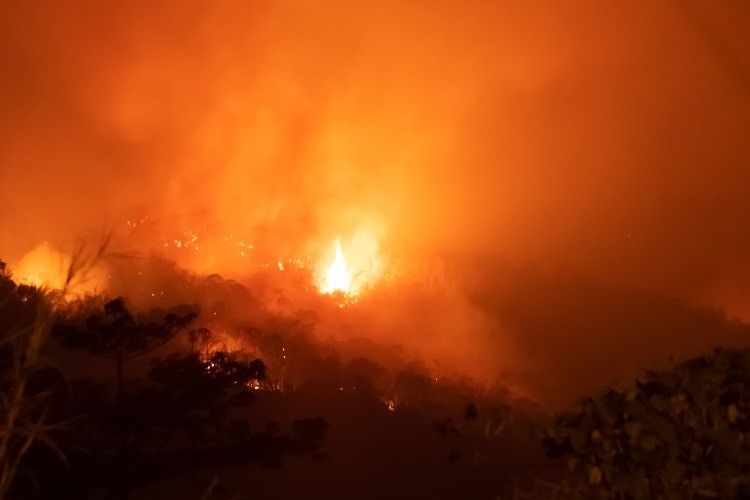Indigenous people in South America are twice as likely to die from wildfires
4-May-2023 8:00 PM EDT, by Institute of Physics (IOP) Publishing

Amazon landscape overtaken by wildfire with a strong blaze in the centre and a smoke-filled sky.
Newswise — A fresh analysis, released in Environmental Research: Health, a publication of IOP Publishing, discloses that the chances of untimely death from smoke exposure resulting from wildfires are doubled for the Indigenous population residing in the Amazon Basin compared to the wider South American populace. Smoke exposure hotspots have been detected in areas of Bolivia, Peru, and Brazil, where mortality rates have surged to six times that of the overall population.
The findings demonstrate that smoke produced by wildfires in South America is responsible for roughly 12,000 early deaths annually between 2014 and 2019, with around 230 of those fatalities taking place in Indigenous territories. The dry season in the Amazon region, lasting from July to November, sees a considerable rise in harmful smoke particle exposure, with PM2.5 levels more than doubling due to the wildfires.
According to Dr. Eimy Bonilla, the study's main author, "Despite the fact that Indigenous territories contribute to only a small percentage of the total fires in the Amazon Basin, our research reveals that individuals residing in these territories are subjected to notably higher health hazards due to smoke particles in comparison to the broader population."
Earlier studies in this field concentrate on the health effects of countries on a broader scale, and often depend on data from hospital admissions. This approach does not accurately reflect the impact on individuals inhabiting Indigenous territories, who are frequently located in closer proximity to wildfires, exposed to smoke particles for more extended periods, and lack access to adequate medical facilities, hygiene resources, and clean water. The new research, spearheaded by scientists at Harvard University, employs a blend of atmospheric chemical transport models and an updated concentration response function to gauge the rate of premature deaths among Indigenous communities exposed to high concentrations of PM2.5.
More:
https://www.newswise.com/articles/indigenous-south-americans-at-higher-risk-of-wildfire-deaths
